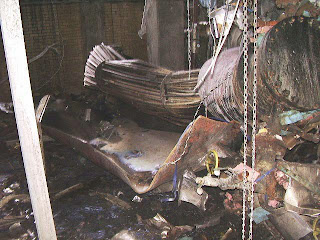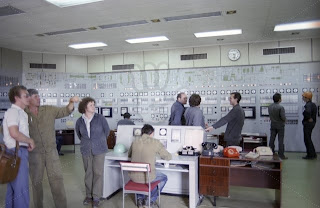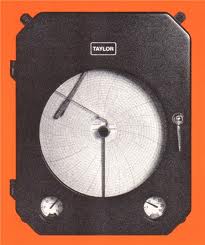January 22, 2012
Worker killed in explosion during hot work
An accident at a SRU at a refinery has killed a worker. Read the article in this link. Please see my earlier posts under safe work practices. Hot work should be done with proper precautions and it is sad that repeated accidents are occuring.
January 20, 2012
Process Safety and Risk management in the high speed age
A good article called "Black swans turn grey -The transformation of risk" by Price Waterhouse Coopers highlights the following:
Read the article by PWC in this link.
- The boards of big organisations do not fully understand the risks that they are running
- In the Internet age, speed and prejudice are all
- Checks and balances at board level are critical.
- Leadership and culture shape an organisation’s attitude to risk.
Read the article by PWC in this link.
January 19, 2012
Oil rig catches fire
An oil rig in Nigeria has caught fire and it is reported that two workers were missing and two are hospitalised. Reason for the fire is not known. Read about the fire in this link.
January 17, 2012
Learning from Buncefield
The Buncefield incident in 2005 was a wake up call for the industry. A lot of assumptions that were in vogue till then in QRA were overturned. Henry Troth has made a good presentation of the incident mentioning the following:
- "Take a critical look at your Safeguards, your Prevention and Mitigation Layers – they may not be as effective as you need
- Tanks should have overfill lines from HHH down to ground level to reduce splashing and vaporizing overflowing fuelTank
- Overfill Protection should be SIL rated and proven in use
- Retrofit water curtains on closely spaced tanks
- Fire Pump House should not be a source of ignition (classified area)
- Store portable fire fighting equipment and foam in a ‘safe’ place -stationary equipment usually gets knocked out.
- Remember – you must keep all Safeguards working as well as the SIS layer(s) – otherwise you are exposed
- Is a spill all you need to worry about (what could possibly go wrong)?
- Consider consequences carefully – What will you do if the unthinkable happens?"
January 15, 2012
Investigating process incidents
"Aerodynamically, the bumble bee shouldn't be able to fly, but the bumble bee doesn't know it so it goes on flying anyway" - Mary Kay Ash, American Businesswoman
I like this saying as it is very relevant to process incident investigation. In the course of investigating many process incidents, I have come to the conclusion that you need to be like the bumblebee (keep your mind open, and avoid jumping to conclusion!) while investigating incidents. Many chemical process incidents may apparently not reveal the root causes immediately. I have used the event and causal factor analysis/barrier analysis and Man-Technology-Organization analysis to determine the root causes of many chemical incidents. Also, listen to the people who were present during the incident and observe the incident site. Equipment tell silent tales.
I like this saying as it is very relevant to process incident investigation. In the course of investigating many process incidents, I have come to the conclusion that you need to be like the bumblebee (keep your mind open, and avoid jumping to conclusion!) while investigating incidents. Many chemical process incidents may apparently not reveal the root causes immediately. I have used the event and causal factor analysis/barrier analysis and Man-Technology-Organization analysis to determine the root causes of many chemical incidents. Also, listen to the people who were present during the incident and observe the incident site. Equipment tell silent tales.
January 11, 2012
January 9, 2012
January 7, 2012
The hazards of thermal expansion
Many plant personnel do not give importance to thermal expansion safety valves. These are typically small valves and often, the isolation valves are kept closed as they pass. It is human tendency to ignore small things but in process safety it is the small things that cause big disasters!
The CSB had published a good case study on a fatality that occurred due to the bursting of a heat exchanger due to thermal expansion of trapped ammonia. It is worth reading and sharing with all your colleagues. Read it in this link.
The photo at the left is courtesy of the CSB.
Read another incident in this post.
Read a third incident in this post
The CSB had published a good case study on a fatality that occurred due to the bursting of a heat exchanger due to thermal expansion of trapped ammonia. It is worth reading and sharing with all your colleagues. Read it in this link.
The photo at the left is courtesy of the CSB.
Read another incident in this post.
Read a third incident in this post
January 5, 2012
Cyber security for chemical plants
Dr Trevor Kletz has said "what you don't have cannot leak". This was with reference to hazardous chemicals. It makes sense then and makes sense now. But with the advent of Internet and remote operation of chemical plants, we often think that the best way to keep a plants intranet secure is not to connect it with the Internet. In other words, "when you are not connected , you cannot be hacked".
Last year, the cyber attack on a nuclear development facility in Iran, caused centrifuges to speed up but the control room did not display the increased speed! It is a very interesting story and just imagine what could happen if a cyber take over of critical equipment in a chemical plant takes place? Ensure your systems are adequately protected and conduct cyber security drills along with your regular mock drills! Read the very interesting article about the centrifuge incident in this link.
January 4, 2012
Process Safety - Keep it simple
I often think that today we are complicating things too much in process safety, in an already complicated World! This generation of plant operators have been inundated with technology. While some of the technology is excellent, not all of them really help the plant operator. Information overload is the bane of today's PSM programs. When I was a shift in charge at an ammonia plant, we had pneumatic control system (no DCS), but it was so user friendly. I would sit in the center of the control room and at a glance I got to know the plant status. The control room had three operators - one for the front end of the plant, one for the back end and one senior guy looking after both. During emergencies, the senior guy would coordinate the actions very swiftly as he could see the complete plant status just at a glance. The whole ammonia plant had only about 200 alarms that were located on the panel. The critical ones were painted red. By experience we would know which alarm meant what! We never had a serious process safety incident!!I managed to get some pictures to illustrate what I am talking about.
Our control room looked similar to the one at the left. The table at the center was a flat table. The shift engineer used to sit at this table.The control panel is just below the clock.The flowsheet of the entire plant (called a mimic) was depicted at the panel top
This was a field controller. See how simple it is! The red arrow is the setpoint.
This temperature recorder was similar to the one we used to record secondary reformer top temperature and methanator temperature.
The message I am trying to convey is try to keep it as simple as possible. Buy only what you want and not what you get! (This is especially true for DCS and electronic instrumentation)
Our control room looked similar to the one at the left. The table at the center was a flat table. The shift engineer used to sit at this table.The control panel is just below the clock.The flowsheet of the entire plant (called a mimic) was depicted at the panel top
This temperature recorder was similar to the one we used to record secondary reformer top temperature and methanator temperature.
The message I am trying to convey is try to keep it as simple as possible. Buy only what you want and not what you get! (This is especially true for DCS and electronic instrumentation)
January 2, 2012
PSM and PDCA cycle
The PDCA cycle is the core of any management system. I have seen a common trend from investigating root causes of many chemical plant process incidents - it appears that many of the root causes are due to following the PDCA cycle in a different way: DCA,no P -DO, CHECK, ACT and No PLAN! Fire fighting efforts take place to immediately attack an issue. Productivity, cost cutting and efficiency improvements often take place without undergoing the management of change process. This is why I feel that while certifications to OHSAS 18001, ISO 14001, Responsible Care etc are good, the sustainability of such certifications become questionable. This is evidenced by fatal accidents in companies that are certified. How do we solve this issue? I believe that the onus lies with the top management. If top management are clear about process safety and its implications, then you do not need any system at all! Unfortunately, there is a huge knowledge deficit about the technical aspects of running a chemical plant and the importance of PSM. Recently I had implemented PSM in a pesticide manufacturing unit where the head of the unit was a hardcore experienced chemical engineer. His understanding of the technical nitty gritties of PSM helped me greatly during the implementation. I will end my ranting by repeating two things that Dr Trevor Kletz has said and is highly relevant to Process safety management:
1.Walk the talk!
2.Keep it simple!
January 1, 2012
WISH YOU A HAPPY NEW YEAR!
To all my subscribers and readers,
Wish you and your family a very happy New Year!
Wish you and your family a very happy New Year!
Subscribe to:
Posts (Atom)



